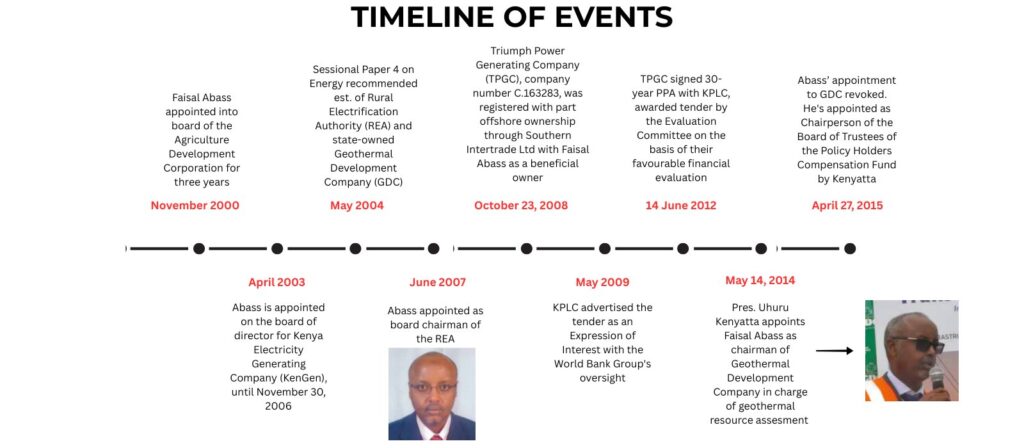Faisal Abdirahman Abass is a prominent figure in Kenya’s energy sector, having held roles in various energy organizations, including KenGen, the Rural Electrification Authority (REA), and the Geothermal Development Company (GDC).
He currently serves as the Chairman of the Privatisation Commission. However, recent allegations have raised serious concerns about his reputation and the transparency of his actions, particularly related to his alleged conflict of interest with Triumph Power Generating Company (TPGC).
Investigative journalist Tom Mukhwana posted a thread on X, outlining serious accusations against Abass. Mukhwana alleges that Abass secretly owned a stake in TPGC, which secured a 20-year power deal while Abass chaired REA. The shell company Southern Intertrade, based in the British Virgin Islands (BVI), was reportedly used to hide his involvement in the company.
This raises questions about potential conflicts of interest, especially given that TPGC’s power plant deal was for a highly controversial 83MW diesel plant located in Athi River’s Export Processing Zone (EPZ), a project that burdened Kenyan consumers with high energy costs.
In the early 2000s, Kenya faced a rising demand for electricity. To address this, the World Bank oversaw the tendering of four power plants aimed at boosting electricity generation one geothermal and three diesel, including the Triumph Power Generating Company.
These projects were valued at $623 million, financed by commercial banks and World Bank instruments. When Kenya Power and Lighting Company (KPLC) advertised an Expression of Interest for a plant in Athi River on May 29, 2009, TPGC won the bid despite being registered only seven months earlier, in October 2008, with no experience in electricity generation.

The company’s shareholding was mostly controlled by one family but also included Southern Intertrade, a shell company registered in the British Virgin Islands, a well-known secrecy haven. Faisal Abdirahman Abass was listed as the beneficial owner of the BVI firm, further raising questions about his role in the deal.
Abass had already held several influential government positions before this, including a seat on the board of the Agricultural Development Corporation in 2000, the board of KenGen from 2003 to 2006, and then the position of board chairman of REA starting in June 2007.
During his tenure at REA, Triumph, a company he was allegedly hiding ownership of, won the tender to develop the Athi River diesel plant. The project was expected to yield over Kshs 23.3 billion in dividends.The involvement of Abass in the Triumph deal has left many questioning the integrity of the procurement process.
The company’s rapid registration, lack of experience, and opaque ownership structure suggest that the deal may have been manipulated behind the scenes, benefiting those with insider connections.
Given the high financial gamble and the growing public concerns, this case casts a long shadow over the management of Kenya’s energy sector and raises serious questions about the transparency and accountability of key players in the industry.
